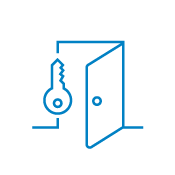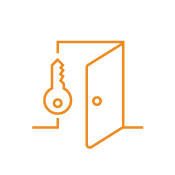What Tax Deductions Can Small Business Owners Claim?

For better or worse, it’s tax season. It’s time to organize your documents and receipts as a small business owner.
Does your business have commercial insurance? Don’t forget that you can deduct the cost of commercial insurance premiums when you’re doing your taxes for your small business.
What insurance can I deduct for my small business in Canada?
The Canada Revenue Agency has determined that a business owner can deduct commercial insurance premiums for insurance on any buildings, machinery, and equipment that are used for their business.
What business insurance is tax deductible?
Here are some examples of commercial insurance that are typically deducted by Canadian business owners:
- Commercial property insurance
- Errors and omissions insurance (also called professional liability insurance)
- General liability insurance
- Business interruption insurance
- Cyber liability insurance
- Product liability
Any money spent running your business is considered a business expense. You can claim it on your tax return as a deduction. Remember to double check with a tax expert about specific deductions for your small business.
To claim business insurance as a tax deductible for your business, you will need to keep accurate records and receipts yearly.
Top tip: Claim as many legitimate business expenses as you can to reduce the amount of taxes you have to pay for the year.
Examples of the most common tax deductions for businesses
Revenue Canada says you can deduct any reasonable current expense that you incur to earn income as a business owner. Here are some of the most recognized deductions:
Insurance
Business owners can deduct commercial insurance premiums for insurance on any buildings, machinery, and equipment that are used for their business.
Supplies
The cost of supplies that your business uses to provide goods or services to customers are tax deductible. For example, if you are self-employed and you have purchased tools that you use in your business, the full cost of those tools is also considered to be a deductible business expense.
Delivery and shipping costs
Is your mailing or shipping business-related? If the answer is yes, then you can deduct the cost of postage, envelopes, post office box rental fees, and delivery services like FedEx and UPS.
Office supplies
Items such as pencils, pens, stamps, paper clips, and stationery are tax deductible—even the cost of the cleaning supplies. Note that this category doesn’t include desks, chairs, and filing cabinets because those are capital items.
Professional fees
Legal, accounting, and bookkeeping fees are all deductible small business expenses.
Rent
As a business owners, you can deduct rent paid for property used in your business, including the rent for the land and building where your office is located.
Telephone and internet
Telephone, mobile phone, cable, and internet are all deductible if these expenses are related to business activities.
Start-up costs
These costs can include anything your business needs to launch, such as equipment, machinery, supplies, and legal and accounting advice. Note that for a start-up cost to be eligible for a tax deduction, it must be during the year your business starts.
Accounting and tax preparation software
If you’re self-employed or run your own small business, accounting services and tax preparation software are eligible deductions.
Advertising fees
These fees include the cost of ads on Canadian radio and television stations and in Canadian newspapers. Digital advertising is also tax deductible, as well as the cost of registering your website’s domain name and web hosting.
Independent contractors
If you hire independent contractors or freelancers for any business-related purpose, such as writing posts for your company blog, it is a tax deduction.
Marketing fees
Materials used to promote your business and the cost of developing these materials are your marketing fees. Examples would include business cards, signage, branded promotional items, trade shows, designer fees, and printing costs.
Meals and entertainment
You can deduct 50% of the amount that you spend on meals and entertainment. For example, if you take your client to dinner, you can deduct 50% of the cost from your business income.
Vehicle expenses
You can only claim car expenses related to the business use of your personal vehicle. If 50% of your mileage in the year was for business purposes, you will be able to claim 50% of your vehicle expenses that year.
Home office
To deduct your home office expenses from your income, your home office has to be your primary place of work, meaning you work there more than 50% of the time. The space needs to be used solely for business income.
Salaries, wages, and benefits
You can deduct gross salaries and other benefits, like the Canada Pension Plan (CPP) and Employment Insurance (EI) premiums you pay to employees. Go over the specific details with a tax expert.
Utilities
Expenses for heat, electricity, insurance, maintenance, mortgage interest, and property taxes are tax deductible. If you have a home office, utility tax deductions must be in line with the size of the space you’re using for your business.
Management and administration fees
As a small business owner, you can deduct management and administration fees, including bank charges incurred to operate your business. Bank charges include those for processing payments.
Property taxes
The property taxes you paid for the land or building your business operates. If it’s part of your home, you will deduct it under the business-use-of-home expense.
Interest and bank charges
You can deduct interest incurred on money borrowed for business purposes or to acquire property for business purposes.
What is the tax deadline for business owners?
Self-employed tax returns are due June 15, but any taxes owed must be paid by April 30.
What can’t you deduct as a business owner?
Can I deduct my business attire?
You can’t claim business attire while running your business or meeting with clients or customers.
Can I deduct a fine?
In general, fines and penalties for breaking the law are not tax-deductible. This means that if you receive a traffic ticket or for breaking any other law, you cannot deduct the cost of the fine on your tax return. The Canada Revenue Agency (CRA) does not allow the deduction of any fine or penalty imposed by a government, court, or regulatory body.
I do my own repairs at my business. Is this a tax deduction?
No, you cannot deduct the value of your own labour.
Can I deduct capital property expenses?
If you buy an office building or a truck for your small business, you can’t claim expenses you incur to buy it, but you can deduct any reasonable current expense you incur to earn income. This means you can claim the goods and services tax (GST) or harmonized sales tax (HST) you incur on these expenses minus your input tax credit, a credit that offsets the amount of GST/HST you pay.
Can I deduct the cost of travel to and from my small business?
No, you cannot deduct the cost of travel to and from work, but you can deduct travel expenses you incur to earn business and professional income.
Do you have to claim business income under $30,000?
If a small business earns more than $30,000 a quarter or more than $30,000 in a year it must collect the harmonized sales tax/goods and services tax (HST/GST).
Final thoughts
Your work hard for your money as a small business owner. It’s important to understand what you can deduct and what you can’t deduct when you file your taxes. Get professional advice if you need it.
Why Western?
We’re 100% Canadian!
Get the best business insurance
We’ll help you save
We’ve been serving Canadians for over 100 years
Call Us Now 888-595-3104







